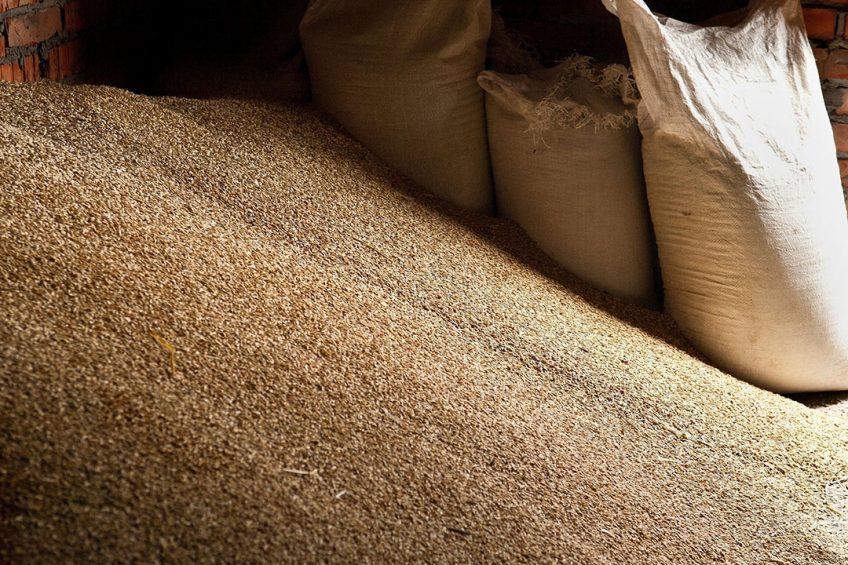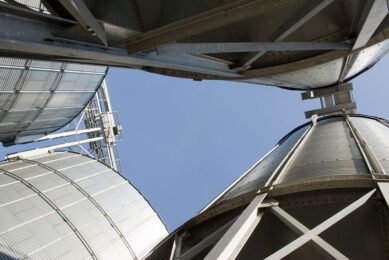Should non-assured growers have access to UK feed mills

The UK’s leading farm assurance scheme has said UK growers should be free to choose which markets they access whether they are assured or not.
It follows concerns aired by a number of arable farmers who have been keen to discuss the prospect of a digital passport method of allowing non-Red Tractor assured grain to enter UK feed mill markets.
Unlevel playing field on market access
Yorkshire grower Steve Ridsdale has been worried about the “unlevel playing field” on market access to feed mills and other domestic grain markets for those who are not part of assurance schemes. At present, there are around 47,000 cereal farms but less than a half (20,000) are linked to either the Red Tractor or the devolved crops schemes. As a result, a number have been unable to access Agricultural Industries Confederation (AIC)/Universal Feed Assurance Scheme (UFAS) accredited feed mills.
Grain importers have better access than UK growers
The group say it is easer for grain importers to have access to UK feed mills than domestic food producers. And they are also calling for a pesticide declaration box to be added to the grain passport to confirm UK grain is safe.
Equal opportunities to supply the UK’s assured animal feed market should be given to domestic farmers as is afforded to imported grain.
Import grain standards
Jim Moseley, Red Tractor Assurance chief executive, said Red Tractor had joined working group led by NFU vice-president Tom Bradshaw, to establish the facts on imported grain standards and compliance. The working group also includes the Agriculture Horticulture Development Board (AHDB), the Agricultural Industries Confederation (AIC) and the UK Flour Millers.
Gatekeeper protocol
Moseley said at the heart of the issue was the “gatekeeper protocol”, part of the AIC feed assurance schemes. This allows grain produced in a country where there is no farm-level assurance to enter the UK feed market. The protocol is part of the Feed Materials Assurance Scheme (FEMAS). This essentially provides an assurance system to certify that feed ingredients designed for UK livestock feed meet strict legal and industry safety requirements.
…it is Red Tractor’s view that UK growers should be granted like for like access to this scheme [FEMAS]…
FEMAS assurance scheme not open to UK non-assured growers
To ensure the safety of livestock feed, Red Tractor has always specified that feed must be assured under the FEMAS Universal Feed Assurance Scheme but currently FEMAS is not open to UK non-assured feed grain growers because of the substantial costs associated with testing.
“We can see how this might be interpreted as a closed shop,” said Moseley, adding that, “it is Red Tractor’s view that UK growers should be granted like for like access to this scheme, allowing them the freedom to choose to only supply the livestock feed market in this way.”
Review and amend FEMAS scheme
He urged the AIC to review and amend its scheme to create a route to market for non-assured domestic grain under FEMAS and its “gatekeeper protocol”: “Equal opportunities to supply the UK’s assured animal feed market should be given to domestic farmers as is afforded to imported grain.”
Wheat imports for UK flour milling sector
The UK flour milling industry also imports wheat and it has clarified its requirements for the imported wheat assurance market. UK Flour Millers have said in an article earlier this month that approximately 85% of all wheat used by UK millers is sourced in the UK.
It disagreed with comments that imported milling wheat does not meet any assurance standards, thereby putting UK producers at a competitive disadvantage. It argued, for example, that the lack of a universal farm assurance scheme means that imported wheat is subject to a much more rigorous system of checks and tests than home-grown.
“In addition to checks on technical specification, a sample will be taken on each lot of 200 tonnes and tested for a full suite of pesticide residues, mycotoxins, and other potential contaminants at the seller’s expense.”
AIC looking at amendment possibilities
The working group confirmed that the AIC is looking at change to the recognised supplier schemes lists to allow a “gatekeeper” route for non-assured grain and farmers are now keen to involve other sectors in discussions with AHDB, including the Seed Crushers and Oil Processors Association (Scopa) and the Maltsters’ Association of Great Britain.











